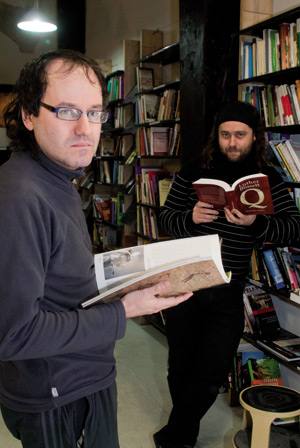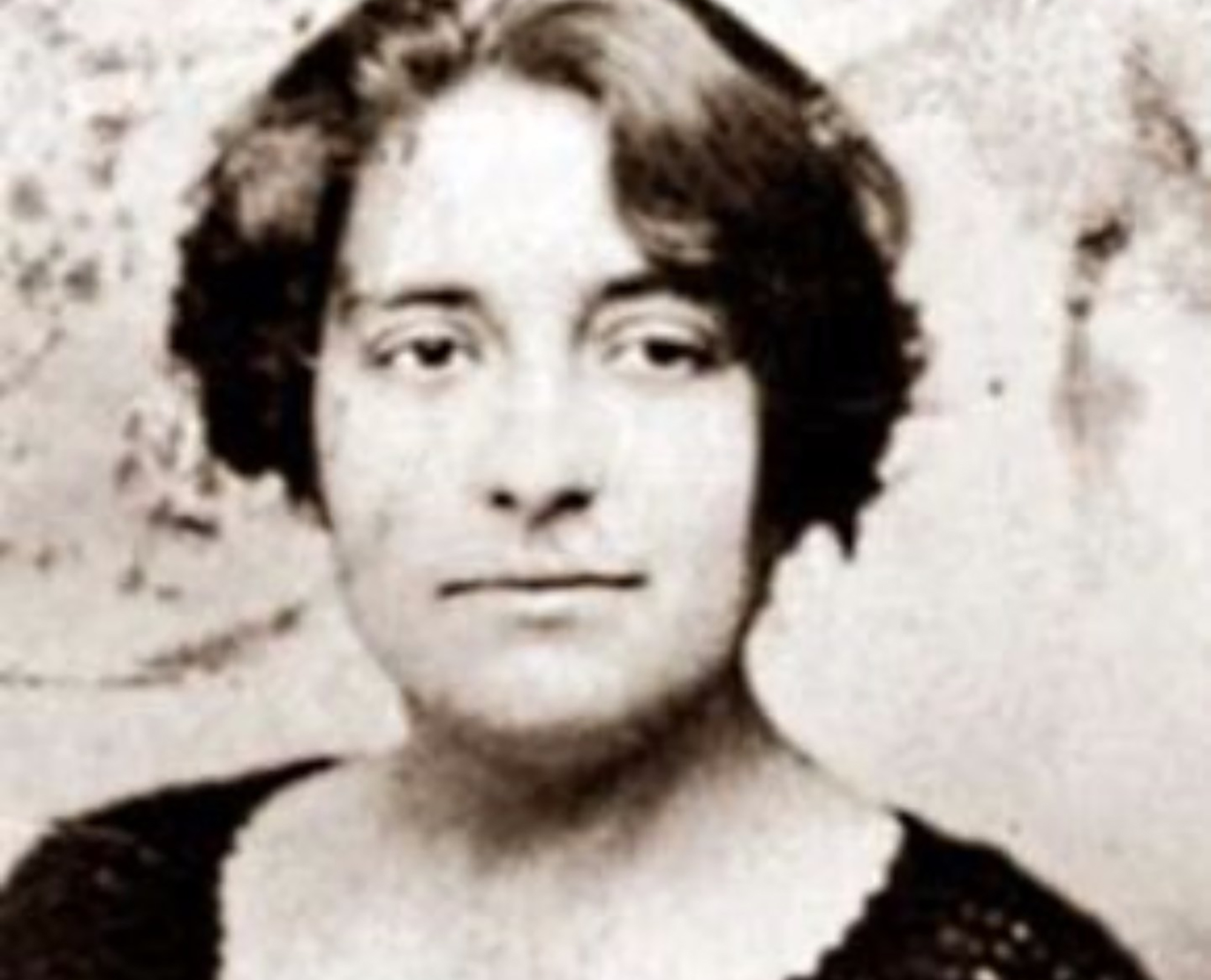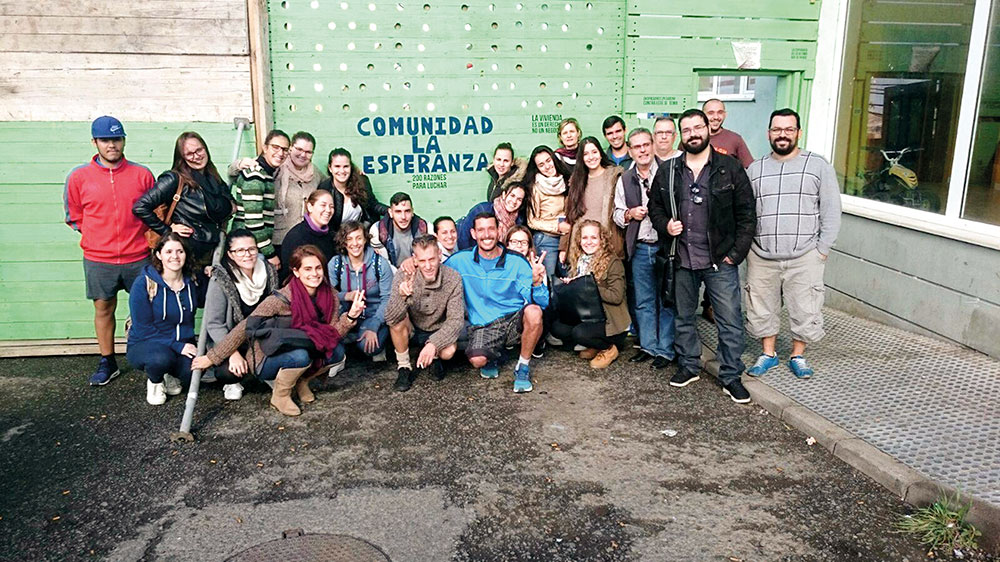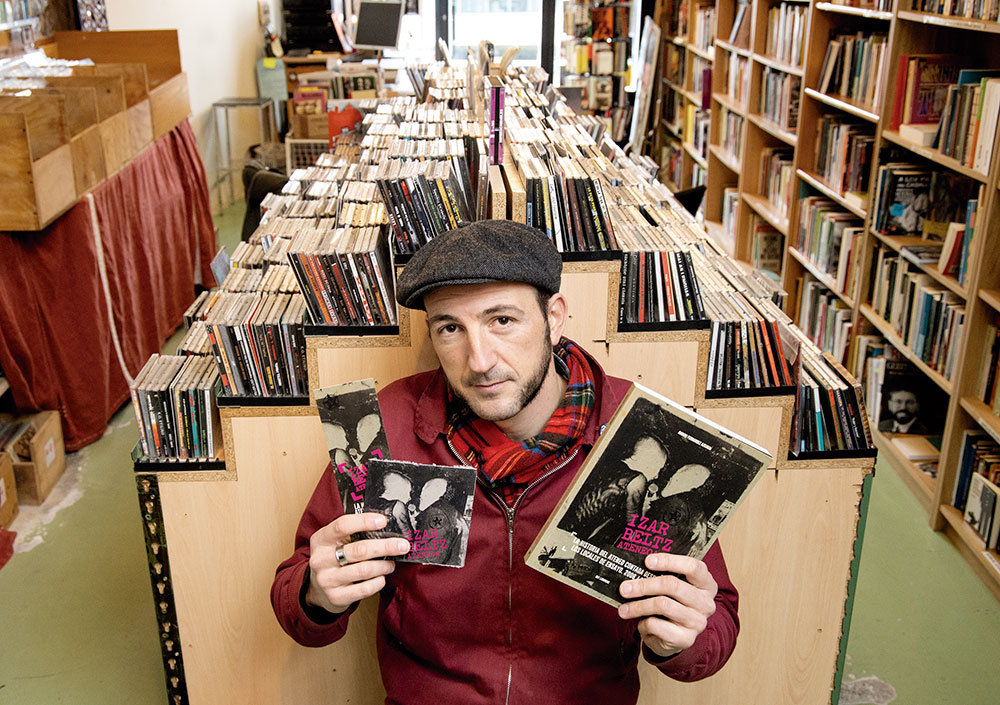The Likiniano-Center of Closed Conflict, popular culture has lost
- In October 1992, the cultural association Felix Likiniano was created on Iturribide Street. It was not a store of books, records, magazines and fanzines to use, but a space for meeting and reflecting on the social movements that had been shaking since the 1980s. I wanted to become a meeting point for associations of neighbors, passions, free radios, anti-authoritarian movements, ecologists, feminists or self-managed. After many years of invaluable work, he closed his doors in January.

Many things have changed in the last 20 years, but Juantxo Estebarce, founder of the association Felix Likianoano, remembers very well the objectives and context in which the association was founded. The Gaztetxe in Bilbao was still open in October 1992 and, just one month after the opening of the Felix Likiniano store, one of the largest and most dynamic young people who have passed through the Casco Viejo de Bilbao was closed. In the 1980s, the area was founded by several groups: the input and anti-authoritarian movements at their best, the free radios of neighborhoods and towns, the struggle for Itoiz and the environmentalism that with the movement against the TAV that was coming was opening a new era... “Likinian was born from a reflection,” says Juantxo Estebarn. “The movements that came from the 1980s were dispersed, except for the age of those who worked ideologically and in different groups. We had been in youth movement, in self-management, for example in the gaztetxe of Bilbao.”
The aim was to create a common space where these movements converged and what had already been produced. The store, which initially opened on Iturribide Street, had three spaces or objectives. “First as a store, create a public space. Until then, we had been distributing many materials, for example, in the alternative distribution group of DDT, but it had its own character and we wanted the store to be aesthetically open to all kinds of audiences. The second objective was to be the meeting place of people and groups working in alternative and assembly movements, and to make this space the place of their activities, initiatives, exhibitions or conferences. There was a third goal, a space that would manage all of this.”
Felix Likinian, an anarchist and patriot who fought in the War of 36, is the name they named the new cultural association. “He was a libertarian and patriot and anti-mperialist person. He was also a creator, he wrote and painted. For all these reasons, and for being pioneers in their time, we chose Félix Likiniano to enroll in the association,” explains Estebarn. Some free-spoke materials came, such as Kalaña irratia or Bost Axola; and Liki absorbed the distribution group of discography and alternative materials created by the DDT Distribution at the Gaztetxe in Bilbao. Between 1992 and 1995 he was on Iturribide Street, until the Ronda Street Shop opened in December 1995.
In 2006 there was a change, the association changed name and fact and gave way to the Conflict Zone and the Association March 18 (Comuna Day). But during this time, Likinian launched several initiatives: An infogune was created to collect the material of the struggles that took place since the 1970s – books, videos, magazines and fanzines, above all, of the struggles in anti-capitalist, assembly and alternative activities. On the other hand, it was a resource center of several associations, which offered them a photocopy service. Finally, in 2002, and coinciding with the illegalization of the Abertzale left, Likinian carried out reprography works for the groups and associations of this movement, “with serious problems not only for the elaboration of their documents but also for the printing of their posters”.
In 2006, and with the creation of the Pole of Conflict, “the bookstore was so great that all our efforts focused on it. The store was not the main objective in itself, although by then it was already of great prestige and prestige, at least in Bizkaia,” says Estebarn. There were two options, the dissolution of the partnership or the resumption of the project. Thus, a group emerged from the Distribution DDT that assumed the responsibility of keeping the store going, wanting to work also as a political group, always in the anti-capitalist and libertarian sphere, “not so much as until then as a bridge of different groups. They knew the defects of Licinian, the consequences of bureaucracy, that the media ate the ultimate end. In my opinion, once again, this machinery has sunk the Conflict, in addition to the loss of money derived from the new models of cultural consumption.”
Counterculture, from the street to the world
The member of the Garikoitz Zulueta Conflict Center believes that the closure of the Conflict Zone is due to three “collapses”. “The first has been a political collapse, because political reflection was neutralized. As in Likinian times, inertia had devoured us, as the Borroka bookstore was a running business. We could not reach the presence of the street.” “Economically, the last two years have been hard” he continued. The Likinian and Conflict engine, the main economic income, came from the sale of records. “The crisis in the music industry has not helped us. The fall has been total. In the books the same thing happens, publishers are suffering a serious crisis and that rush forward has turned the book into a luxury object. That is one of the main reasons for the closure, the economic collapse.” The last reason has been “the collapse of the human team. For the above reasons, everyone has taken their way and although the DDT intends to continue in the distribution, the Conflict project is too big for them,” says Zulueta.
Likinian-Conflict has disappeared, but “we have to adapt to this new time. Our model may be a bit obsolete, but on the street there is a desire, there are those who see the need for such a project in Bilbao and its surroundings. There are people who are willing to undertake something like this with an innovative model. And I've heard rumors that you're going to launch a similar project, it's a consolation."
Bilbao and Bizkaia also deserve and need a space like the Likiniano-Conflict, according to Juantxo Estebaranz. “When the crisis of the conflict was known, several people and groups approached to help the project move forward, aware of the need for this space. You can't imagine Bilbao without that space, there are people who resuscitate and maintain the network of associations that Likinian and the Conflict have achieved. And today, in 2012, it’s no harder than 20 years ago.”
Born 7 November 1924. A group of anarchists broke into Bera this morning to protest against the dictatorship of Primo de Rivera and to begin the revolution in the Spanish state.
Last October, the composition of the Central Board was announced between the displaced from Spain... [+]
Henry D. Thoreau ::Desobedientzia zibila
Potxo Edizioak
orrialdeak ::77
prezioa ::10€

























